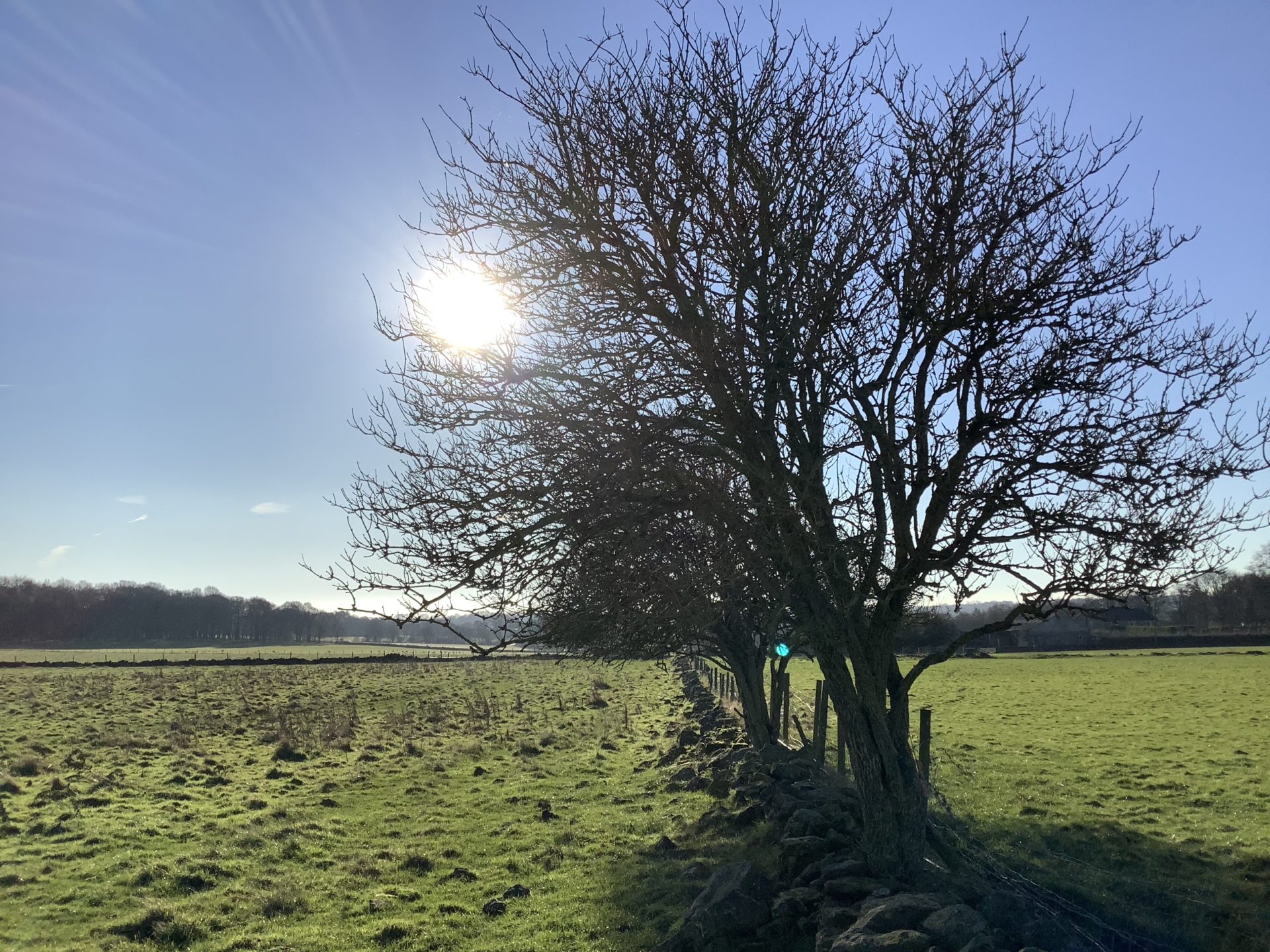Plans to develop new Gair Wood

- Tags
- balancing emissions
The University of Leeds is developing plans for one of the most significant woodland creation projects in the north of England, which would increase biodiversity, provide research and teaching opportunities and capture carbon as part of the University’s Climate Plan.
The project would contribute to the White Rose Forest initiative which aims to plant 7 million trees in West and North Yorkshire by 2025, increasing the region’s tree canopy coverage from 11 to 19% by 2050. It would be named Gair Wood for University Secretary Roger Gair, who retired in 2021 after more than 40 years at the University of Leeds.
A mosaic of habitats over 36 hectares
Leading the project is a steering group made up of staff from the University’s Estates team, Sustainability Service, the School of Earth and Environment, and the United Bank of Carbon (UBoC), along with a representative from the White Rose Forest. The steering group is working in conjunction with Leeds City Council, Natural England, the Environment Agency and the Forestry Commission.
The new woodland would involve the planting of over 60 thousand regionally appropriate broadleaved species such as oak, hazel and willow, across a 36-hectare site. For context, one hectare is around the size of a rugby pitch (100m x 100m).
Around 15 hectares of new tree planting would be added to 4 hectares of existing tree cover, with the remaining space a mix of natural regeneration, scrubland and open spaces. This will transform the current grassland into a mosaic of habitats increasing biodiversity.
Research and teaching opportunities
The Gair Wood site sits near Golden Acre Park and would provide research and teaching opportunities including use as a Living Lab. The new woodland would also benefit the local community by linking existing public footpaths and providing volunteering opportunities.
Dr Cat Scott, a NERC Independent Research Fellow in the School of Earth and Environment, and Director of the LEAF network at University of Leeds, said “Alongside committing to reducing greenhouse gas emissions as much as possible, the University is exploring ways to actively remove carbon dioxide from the atmosphere. Creating this new woodland will allow us to explore the impacts, in real-time, of tree planting as a nature-based solution to climate change. Researchers with a wide range of expertise are coming together to assess changes to diverse aspects of the site like the composition of the soil, the species of wildlife present, and local air quality as this new woodland evolves.
The woodland will also become a key site for our undergraduate and postgraduate students across the University to undertake local fieldtrips and conduct research projects.”
Dr Tom Sloan, UBoC Forest Science and Policy Fellow adds “As well as research and teaching, the new site will provide students, staff, and members of the local community with volunteering opportunities to help with maintenance and monitoring.”
Contributing to carbon capture and the University Climate Plan
Over time, the carbon captured by Gair Wood would contribute towards the University’s target of reaching net zero, balancing residual greenhouse gas emissions that are difficult to remove entirely. Balancing emissions forms one element of the University’s pathway to net zero, as set out in the University Climate Plan, alongside significant reductions in the amount of greenhouse gases the University produces.
Initial data collection, including an ecological assessment and soil samples from the site, has already been undertaken. The project is at the second stage of its development which involves the creation of a draft concept plan for the site, and the team are consulting with local residents and organisations on the plans.
How you can get involved
The team are particularly interested in hearing from the academic community to ensure that opportunities for research and teaching are incorporated into the plans for Gair Wood. If you are interested in contributing to this discussion, or getting involved in the project in any other way, please contact Dr Tom Sloan (T.J.Sloan@Leeds.ac.uk).
Keep up to date on the latest news
-
-
- Follow us on Twitter: @UoL_Sus
- Follow us on Instagram: @UoL_Sus
- Follow us on Facebook: @UoLSustainability
- Sign up to our Sustainability newsletter
-
 We use the United Nations Sustainable Development Goals (SDGs) as a framework to guide our activity.
We use the United Nations Sustainable Development Goals (SDGs) as a framework to guide our activity.
Find out more about our impact on the SDGs.
